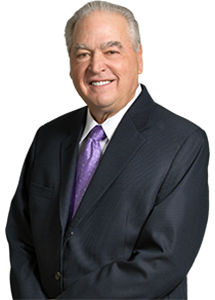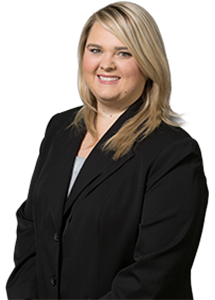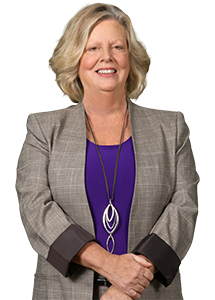Probate
A common issue confronting those who have recently lost a loved one is whether a court needs to be involved in the settlement of the estate of the deceased person (the “decedent”). If any is required, this involvement falls under the judicial procedures referred to as “Probate.” Below is a brief introduction to the probate process in Wisconsin.
What is Probate: Probate can be described as a judicial proceeding in which the property of a decedent is transferred to those who are entitled to it, but only after the rights of all interested parties are protected, creditor’s claims are paid, and taxes, both state and federal, are determined and paid.
Does Probate Apply: To the extent the probate process applies to a decedent’s estate depends on the amount of assets of the decedent that are “subject to probate,” as well as the provisions of the decedent’s estate planning documents, e.g. his or her will, trust, or marital property agreement.
Assets Subject to Probate: Generally all of a decedent’s assets are subject to probate administration, except those assets which transfer outside of the decedent’s will. Assets which transfer outside of the provisions of the decedent’s will include: (i) assets the decedent transferred to a trust prior to his or her death; (ii) assets transferred according to the provisions of decedent’s marital property agreement upon decedent’s death; (iii) assets in which the decedent owned a joint tenancy interest with one or more surviving tenants who have the right of survivorship; (iv) assets in which the decedent held only a life estate interest; (v) bank accounts and savings bonds in which the decedent named as payable on death an individual who survives decedent; and (vi) life insurance policies, annuities, IRA(s), 401(k) and other qualified retirement accounts in which the decedent designated as a beneficiary a person who survives the decedent. The transfer of these assets is not controlled by the decedent’s will. All other assets are subject to one of three types of probate.
Types of Probate: There are three general types of probate proceedings. The proceedings involving the least court involvement are collectively referred to as summary proceedings. A Summary Procedure is available under the following circumstances:
(i) When the assets subject to probate are less than $50,000, in which case the assets may be transferred from the decedent to the beneficiaries through an affidavit executed by a beneficiary;
(ii) When the administration involves the transfer of an isolated piece of property or the resolution of a specific issue, in which case the probate court may appoint a special administrator to transfer the asset or resolve the issue; or
(iii) When a will substitute such as a marital property agreement is used to transfer the decedent’s assets upon his or her death, in which case the transfer contemplated by the will substitute can be confirmed by the probate court through a summary confirmation proceeding.
The other two types of probate proceedings are formal and informal probate. The distinguishing feature between formal and informal probate is the level of court involvement.
A formal probate is presided over by a Circuit Court Judge while an informal probate is supervised by a county register in probate. Typically, formal probate is more involved and more expensive. In some cases, an informal probate can be conducted without an attorney and without a court appearance. In some Wisconsin counties, all informal probate filings can be made through the mail.
A formal probate may be required when the decedent’s will prohibits the use of informal probate or when the decedent dies without a will or with a will that fails to name a personal representative. Formal probate may also be required if there are contested issues concerning the will or the personal representative’s administration of the estate. Informal probate is preferable when a formal dispute resolution is not needed.
Formal probate includes all of the steps of an informal probate with the additional requirement that the court must be kept informed of the process and must rule on contested issues and confirm all distributions.
Personal Representative: In both formal and informal probate, the decedent’s estate is managed by a “personal representative.” The personal representative is typically designated by the decedent in his or her will. In all cases, the court must appoint the personal representative and vest him or her with the authority to manage the assets of estate.
The duties of a personal representative generally include: (i) identifying and collecting all of the decedent’s assets subject to probate administration; (ii) managing the assets during the probate process; (iii) reporting the assets to the court and to the interested persons; (iv) liquidating enough assets to obtain a sufficient amount of cash to cover taxes, debts and expenses of the estate; (v) identifying and paying funeral and burial expenses as well as all enforceable debts, claims, taxes, and probate administrative expenses; (vi) determining the interest of the interested persons in the assets of the estate; and (vii) distributing the remaining assets to the interested persons according to the provisions of the will or, in the absence of a Will, State law.
Costs of Probate: The major probate expenses include court costs, costs of putting up a probate bond, if required, and fees paid to the personal representative and the attorney for the estate.
The largest court cost is the fee required upon the filing of the inventory of the estate. This fee is equal to $2 per thousand of the net asset value of the estate. For example, a net probate estate of $500,000 results in a filing fee of $1,000. The cost of a probate bond increases as the value of the estate increases, but the minimal fee is typically equal to $100.
The amount of attorney’s fees and personal representative commissions depends largely upon the size and complexity of the estate. A personal representative is generally entitled to a fee equal to 2 percent of the value of the estate plus reimbursement of expenses.
The amount of attorney’s fees can vary significantly based on the locality of the proceeding and the expertise of the attorney, and the total attorney fee incurred by the estate largely depends upon the level of services required of the attorney. For example, the legal fees for an estate with no creditor or beneficiary disputes and with sufficient cash to cover all necessary expenses will be much less than for an estate in which there is a dispute between beneficiaries, creditor claims or illiquid assets.
Additional Information: For more detailed information as to the Wisconsin Probate Process, we recommend the website of the Wisconsin Register in Probate Association www.wripa.org.











